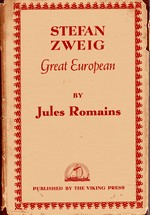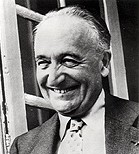I had the opportunity to give a short talk on neglected circadian novels to the British Association for Modernists’s Ephemeral Modernisms conference recently and I thought it was worth offering here a rundown of the various books I mentioned.
A circadian novel takes place within a 24-hour period or a portion thereof. The first scholar to catalogue the circadian novel, David Leon Higdon, preferred this term to that of “one-day novel” for the simple reason that there are many examples of books where the narrative takes place over more than one calendar day: Alan Sillitoe’s Saturday Night and Sunday Morning is a self-evident example.
Not being well-versed in critical theory, I won’t attempt to philosophize about the significance of circadian novels in the context of modernism or of critical writing on the ephemeral and the experience of everyday life, of which Bryony Randall’s 2016 article, “A Day’s Time: The One-Day Novel and the Temporality of the Everyday,” from New Literary History, is a good place to start. Randall quotes Michael Shearingham, who observes that “the figure of the day can provide access to the totality which is the everyday,” and several novelists have commented on the practical utility of a single day or a 24-hour period from a dramatic standpoint. Reflecting on his novel, A Kestrel for a Knave (1968), Barry Hines observed, “It seemed like a natural way to do it. I compressed a number of incidents which had taken place at random over a number of years into one day to strengthen and speed up the narrative.”
Higdon proposes three “focal points”–what might more accurately be called structures–that comprise the majority of circadian novels:
- • A Typical Day
- Two of the greatest modernist novels, Woolf’s Mrs. Dalloway and Joyce’s Ulysses are examples of these.
- • The Last Day
- The last of the protagonist (e.g., Herman Broch’s The Death of Virgil) or of someone close to the protagonist (e.g., Saul Bellow’s Seize the Day)–although, ironically, in most cases, it’s only the author who knows in advance that the character is going to die that day (damned writers playing God again).
- • An Eventful or Event-filled Day
- The distinction here is between a novel set on a historically important day (e.g., Christa Wolf’s Accident, which takes place on the day of the Chernobyl nuclear accident) and one set on a day full of personal events (think of Carson McCuller’s The Member of the Wedding).
The value of these categories are limited, though, as there are plenty of cases where a circadian novel fits into more than one. Is Mrs. Dalloway Clarissa Dalloway’s typical day or Septimus Smith’s last day–and does it matter?
In any case, here are some of the lesser-known circadian novels I mentioned:
- • Pay Day by Nathan Asch (1930)
- Asch could easily have called this, his second novel, Saturday Night and Sunday Morning. Jim, a clerk, picks up his pay and heads home to change for a night on the town, hoping for some adventure that will reward his daily drudgery:
Something wonderful was going to happen in a little while. Maybe in the subway, maybe home, or later in the evening. Coming out of the office, through with work for the day, the time absolutely his own until the next day at nine ‘clock, he felt happy, he was excited.
This Saturday happens to coincide with the execution of Sacco and Vanzetti, but Jim has no interest in larger events. He wants to get drunk, hold a woman close, have a few laughs. Throughout the night, though, the execution intrudes into his consciousness, regularly triggering the thought: is there something I could be doing? In the end, he surrenders to the assumption that he is too small to make a difference: “It was too damned bad these two were killed if they were innocent, but some people said they did it, and it didn’t make much difference anyway. Tomorrow he’d have to go to the office just the same….” Pay Day is a fascinating snapshot of life in New York City in late Prohibition as well as a portrait of a man choosing to turn away from a chance to look beyond his immediate needs.
- Asch’s 1925 novel, The Office is also a circadian novel, one I wrote about here back in 2006.
- • Twenty-Four Hours by Louis Bromfield (1930)
- Twenty-Four Hours opens as a dinner party at the home of Hector Champion — “seventy-one and soft” — is breaking up. Everyone is bored, most unhappy, a few drunk. The guests slowly drift out the door and into the night, but none of them to bed. Jim Towner will wander the speakeasies in hopes of staying drunk and numb, eventually ending up in the apartment of his mistress, the nightclub singer Rosie Dugan. By the time he wakes up the next morning, she will be dead.
- Historian Henry Seidel Canby wrote that Bromfield was “an observer and a summer-up of current custom, current type, and current ideas and his series of novels is likely to be often excerpted from by those writers who in the next age will try to describe the America that was in the eaily nineteen hundreds.” Well, no one much remembers Bromfield for these novels now, but I’d argue that Twenty-Four Hours is still worth a look. Jim Towner could easily have been one of Tom Buchanan’s drinking buddies, his wife Fanny someone with whom Daisy comiserated over cocktails. It’s a powerful portrait of emptiness.
- • Doctor Serocold by Helen Ashton (1930)
- Doctor Serocold is a GP in an English country town. His day starts with an early morning call to the deathbed of his former partner and continues through a dozen or more house calls and his usual surgery hours, until it comes to an end late that night with the delivery of a baby. Ashton uses this construct to create a portrait both of the doctor, an able if not exceptional professional, and the community he serves. Across all this, the doctor is anticipating with dread the receipt of results of his own medical test, certain that he has stomach cancer. As Amy Loveman wrote in the Saturday Review, it’s “Not in any way a dazzling book…but distinguished in its clarity of conception and smoothness of execution.” Doctor Serocold was Ashton’s most successful novel, particularly in the U.S., where it was picked up as a Book of the Month Club featured title.
- Ashton liked to build her novels around structures — literally, in the case of her 1932 novel, Belinda Grove, which told the story of a fictional Regency house north of London and the generations of its inhabitants — including a ghost.

- • The Mere Living by B. Bergson Spiro (Betty Miller) (1933)
- As I wrote here back in 2019, “One clue to the nature of The Mere Living can be found in the author’s maiden name, for she was a close relative of the French philosopher Henri Bergson, who was best known at the time for his theory of time. Bergson argued that there were essentially two different times: clock time, the regular, rhythmic, linearly progressing dimension measured by the clock; and time as experienced by individuals, which in our perceptions can speed up or slow down based on factors that may have nothing to do with the ticking of the clock.
- The Mere Living is, in one way, an illustration of Bergson’s theory, as the author takes through one day in four progressive stages — Breakfast Time; Lunch Time; Tea Time; and Dinner Time — but at widely different paces as experienced by the four members of the Sullivan family: Henry, the husband and father; Mary, the wife and mother; Nancy, the daughter (19); and Paul, the son (17).
- Miller took her title from a line from Browning’s “Saul”: “How good is man’s life, the mere living! how fit to employ/All the heart and the soul and the senses forever in joy!” And The Mere Living vibrates with energy generated from a world filled with other people. For Miller, the “blooming, buzzing confusion” that William James called the infant’s impression of the world is part and parcel of modern life for old as well as young.
- • Gentleman Overboard by Herbert Clyde Lewis (1937)
- With editions now available in nine different languages, Gentleman Overboard is somewhat less neglected than when I first wrote about it here in 2009. Yes it’s worth mentioning as an example of the Last Day circadian novel, since all the action takes place within the hours between Henry Preston Standish’s stroll on the deck of the Arabella and his slip and fall into the Pacific and the last time his slips beneath its surface, never to come up again. From a structural standpoint, Lewis follows the parallel narrative lines of Standish’s thoughts through what proves to be his final day on Earth and the reactions of the passengers and crew of the Arabella as they gradually become away of his disappearance — and begin constructing explanations and motivations for the event.
- Lewis’s 1940 novel, Spring Offensive, is also a “last day” circadian novel that I wrote about here in 2009.
- • David’s Day by Denis Mackail (1932)
- David’s Day could compete with Ulysses in the complexity of its structure. As I wrote here in 2021, “With each chapter, Mackail sets character caroming off character, producing effects ranging from the sublime to the ridiculous. Some fall in love, some fall in ruin, some take a step up the social ladder, some take a tumble down…. From time to time, Mackail doubts his own ability to keep his clock ticking. ‘Would the chain break off here, just because a manager did or didn’t boast, or because he did or didn’t so something with his fingers?’ And indeed, there are moments when the links grow tenuous, when the pace of this day of orchestrated chaos slows….” Nonetheless, Mackail is a wise and amiable choreographer and David’s Day is a thoroughly entertaining book, with an ending that arrives like a cherry atop a splendid dessert.
- Like Helen Ashton, Denis Mackail was fond of simple structural frameworks. He also used the eventful day model in his novels The Flower Show (1927) and The Wedding (1935)–and like Ashton, he also wrote a house-centric novel (Huddlestone House (1945)).
- • The Sixth of October (1932) and The Seventh of October (1946) by Jules Romains
- These two novels bookend the twenty-seven volume series of Jules Romains’ massive work known in English as Men of Good Will in both a physical and literal sense. The first takes place on Tuesday, October 6, 1908, the second twenty-five years later on Friday, October 7, 1933. But beyond this frame, Romains reproduces in large part the chapter-by-chapter structure of the first book in the last. People watch sign-painters at work in 1908, watch an actress in her bath in a silent film in the first; in the last, they gather around an avertisement for false teeth and watch another actress, now in a sound film. Perhaps a bit too obvious and artificial, the approach at least provided Romains with clear starting and ending points for the intricate movements of his hundreds of characters over the course of the thousands of pages of Men of Good Will.
- • The Chase by Horton Foote (1956)
- The Chase began as a play (1952) that Foote expanded into a novel — and which Lillian Hellman later adapted into a 1966 film directed by Arthur Penn and starring Marlon Brando and Robert Redford. It works well as a novel, with each chapter focusing on a particular character as Foote leads us through the reaction of a Texas town to the news of the escape of Bubber Reeves, a convicted murderer and one of the town’s former bad seeds. Of the three different versions of the story, the novel best serves Foote in bringing out the character of the town and its web of self-righteousness, self-service, and pervasive prejudice. A fast-moving and gripping read.
- • The Last Hours of Sandra Lee by William Sansom (1961)
- I confess that I haven’t read this novel, which takes place on the day of the Christmas party at Allasol, a London company involved in miscellaneous chemicals. But Peter Green’s description from his Saturday Review piece on the novel makes it sound like great fun:
Liquor available includes South African sherry, peppermint cordial, brown ale, sparkling cider, ginger wine, Spanish Chablis, Australian Burgundy, Cherry Heering, British port, Irish whiskey, Advocaat, and a brew unknown to me called Pineapple Fortified. On this phenomenal alcoholic basis the whole staff lakes off like a squadron of superjets. From jollity they pass to lechery, from lechery to bitchiness. Some are sick, others caught with their pants down, others again utter unforgettable and unforgivable home truths.
It also sounds like a bit of 20th century mythology, rather like the boisterous conventions full of exuberant drunk sales reps from the Midwest that appear in Hollywood movies from the 1930s through the 1960s. Let’s bear in mind, however, that we’re in the hands of William Sansom, one of the English masters of the short story form and not a writer given to pointless ornamentation.
- The Last Hours of Sandra Lee was the basis of the 1965 film, The Wild Affair starring Nancy Kwan as Marjorie (not Sandra) Lee.

- • The Horrors of Love by Jean Dutourd (1963)
- In the 600-some pages of this novel, two men carry on a conversation about the case of Roberti, a politician convicted for murdering his mistress’s brother. They wander around Paris, lunch, take a coffee at a café, an evening drink at a bar, come to no great conclusions, but cover a great deal of intellectual territory, from the idea of France to the place of fiction in the modern world:
HE: Fiction has always exerted an influence on manners, you know, especially love stories.
I: Yes, but in the old days fewer people knew how to read, there were fewer novels and they weren’t reinforced by the movies. It is interesting to note how in this age of technics, industry, trips to the stars, atomic fission, population explosions, rabid nationalism, the cold war between socialism and capitalism and all the other horrors which I shall refrain from naming, the rights of the little human heart are proclaimed with just as much persistence and diversity.
HE: I have my own ideas about that.
I: Tell me:
HE: I believe heart-throb magazines and sentimental movies are patent medicines.
- Yet when asked to recommend a book worth reading, novelist Diane Johnson wrote, “My first choice would be Jean Dutourd’s The Horrors of Love, which is translated into English and was published in the sixties. It is an incredible tour de force — a dialogue running to more than 600 pages, between two men who are walking through Paris, talking about the fate of a politician friend of theirs who was brought down by an erotic entanglement. Urbaine, wise, humane, funny, even suspenseful — this is a worthy successor, as someone said, to Proust.” Historian John Lukacs seconded this recommendation, writing, “It is a delicious and profound work of art, from beginning to end. Andre Maurois likened it to Proust; but in some ways it is better than Proust, sprightlier and more imaginative. The language itself is superb.”
- • One Day by Wright Morris (1965)
- One Day takes place on Friday, November 23, 1963. The news of President Kennedy’s death hits the town of Escondido, California — likely based on Mill Valley, where Morris lived — but at its own small level, other dramatic events reverberate as well: a baby abandoned at the animal shelter; a doctor has a traffic accident that forces him to remember the one twenty years before when he struck at killed two hitchhikers; a local mortuary’s first television ad debuts with unfortunate timing; an elderly woman is found dead in a car when it rolls into an ice machine. Some of what happens is absurd, some tragic, some touching: throughout the novel, we are constantly reminded that throughout his career Morris could never quite decide whether humanity was something to laugh at in its insanity or weep at in its folly.












 For my own part, I have to admit that I’ve cracked
For my own part, I have to admit that I’ve cracked  It is true that I haven’t read every one of its 4,256 pages, having sometimes been overcome with yawns in the middle of Jerphanion’s arch and soulful letters to his fellow student Jallez. On the other hand, I have read every word of Vols. I, II, III, IV (in French and English), VIII, and the greater part of Vols. V, VI, and VII. The eight volumes stand before me as I write — 612 cubic inches of reading matter, fully indexed, with more than half again as much to follow. Yet I can’t convince myself that this is a work that belongs somewhere between the “Comedie Humaine” and “Remembrance of Things Past.” I can’t convince myself that it ranks much above ordinary novels in any quality except sheer size.
It is true that I haven’t read every one of its 4,256 pages, having sometimes been overcome with yawns in the middle of Jerphanion’s arch and soulful letters to his fellow student Jallez. On the other hand, I have read every word of Vols. I, II, III, IV (in French and English), VIII, and the greater part of Vols. V, VI, and VII. The eight volumes stand before me as I write — 612 cubic inches of reading matter, fully indexed, with more than half again as much to follow. Yet I can’t convince myself that this is a work that belongs somewhere between the “Comedie Humaine” and “Remembrance of Things Past.” I can’t convince myself that it ranks much above ordinary novels in any quality except sheer size.
 Once I returned to Varsity after Christmas I lost no time in starting upon volume one. In this book alone I met about sixty characters, most of whom appeared throughout the series. On and on I went. I paused for the Easter exams; and then while I sought volume four, missing at
Once I returned to Varsity after Christmas I lost no time in starting upon volume one. In this book alone I met about sixty characters, most of whom appeared throughout the series. On and on I went. I paused for the Easter exams; and then while I sought volume four, missing at